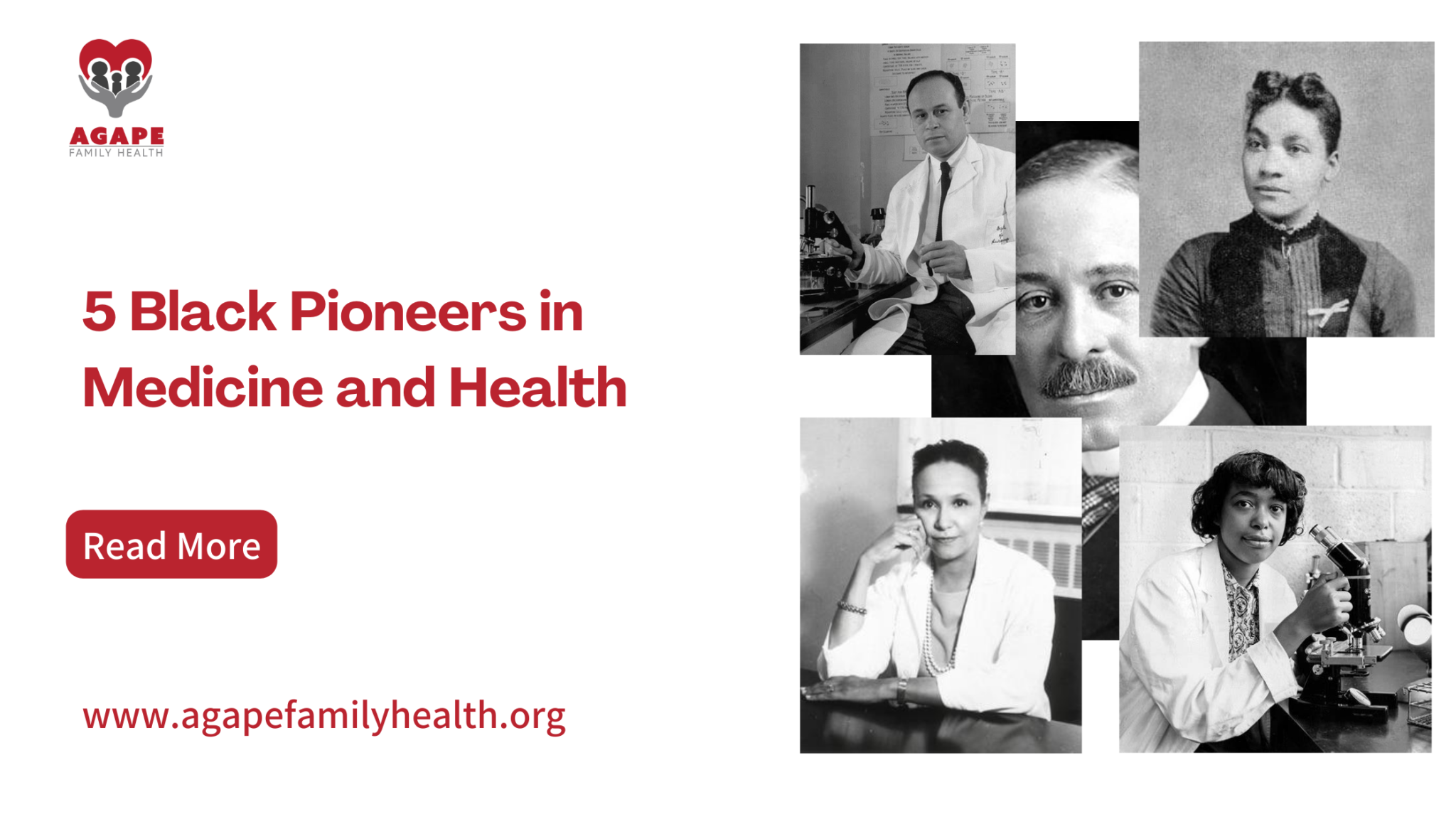As we commemorate Black History Month, it’s essential to celebrate the contributions of Black pioneers in various fields, particularly in medicine and health. Their legacies have not only paved the way for future generations but also significantly advanced the medical field. This article highlights five Black pioneers whose innovative work and dedication have left an indelible mark on healthcare.
1. Dr. Daniel Hale Williams – A Pioneer in Cardiac Surgery
Dr. Daniel Hale Williams, born on January 18, 1856, in Hollidaysburg, Pennsylvania, emerged as a trailblazing figure in the field of medicine at a time when the United States was marred by racial segregation and discrimination. His journey in medicine began after he completed his apprenticeship with Dr. Henry Palmer, a leading surgeon, which led him to pursue further medical training at Chicago Medical College. Williams’ exceptional skills and dedication quickly set him apart in a predominantly white profession, laying the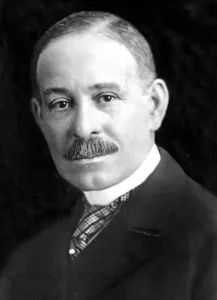 groundwork for his future groundbreaking contributions.
groundwork for his future groundbreaking contributions.
In 1893, Dr. Williams achieved what was then considered a medical miracle by performing one of the first successful open-heart surgeries. The patient, James Cornish, was admitted with a severe stab wound close to his heart. With limited resources and no blood transfusions or modern antibiotics available, Williams successfully repaired the lining of Cornish’s heart, demonstrating extraordinary surgical skill and innovation. This operation, performed without the benefits of modern surgical amenities, marked a pivotal moment in medical history, showcasing the potential of cardiac surgery.
Perhaps equally significant to his medical achievements was Dr. Williams’ commitment to equality and education in the medical field. In 1891, he founded Provident Hospital and Training School for Nurses in Chicago, the first non-segregated hospital in the United States. Provident Hospital was a revolutionary institution, providing an opportunity for Black medical professionals to receive training and employment at a time when most hospitals denied them entry solely based on race. This initiative not only offered critical healthcare services to the Black community but also played a vital role in challenging and changing the racially discriminatory practices prevalent in the healthcare sector.
Dr. Williams’ impact extended beyond the operating room and classroom. He was a founding member of the National Medical Association, an organization established for Black medical practitioners who were systematically excluded from the American Medical Association. His leadership and advocacy efforts were instrumental in promoting equality within the medical profession, advocating for the inclusion and recognition of Black physicians, surgeons, and nurses.
Throughout his career, Dr. Williams remained dedicated to improving surgical techniques, enhancing hospital standards, and advocating for the professional development of Black healthcare workers. His legacy is not just one of medical innovation but also of breaking down racial barriers and fostering an environment of inclusivity and opportunity in healthcare. Dr. Daniel Hale Williams’ pioneering work in cardiac surgery and his efforts to democratize medical education and practice have left an indelible mark on the field of medicine, embodying the spirit of resilience, innovation, and equality.
2. Dr. Rebecca Lee Crumpler – The First Black Female Physician in the U.S.
Dr. Rebecca Lee Crumpler’s journey to becoming the first African American woman to earn a medical degree in the United States is a story of extraordinary determination and resilience. Born on February 8, 1831, in Delaware, she was raised in Pennsylvania by an aunt who was known for providing care to sick neighbors. This early exposure to caregiving sparked Crumpler’s interest in medicine, setting her on a path that would lead her to break racial and gender barriers in the medical field.
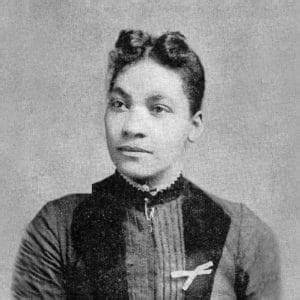 In 1864, against considerable odds, Crumpler graduated from the New England Female Medical College, becoming the first Black woman in the U.S. to achieve a medical degree. At the time, the medical profession was overwhelmingly white and male, and her achievement was not just a personal triumph but a groundbreaking moment for Black women in medicine.
In 1864, against considerable odds, Crumpler graduated from the New England Female Medical College, becoming the first Black woman in the U.S. to achieve a medical degree. At the time, the medical profession was overwhelmingly white and male, and her achievement was not just a personal triumph but a groundbreaking moment for Black women in medicine.
After earning her degree, Dr. Crumpler moved to Richmond, Virginia, a significant location given the context of post-Civil War America. Here, she focused her efforts on treating freed slaves who, due to systemic racism and poverty, had little to no access to healthcare. She worked with the Freedmen’s Bureau, as well as missionary and community groups, to provide medical care to those who had been marginalized and neglected by society. Her work during this period was not just medical in nature; it was also deeply humanitarian, addressing both the physical and emotional wounds left by slavery.
Dr. Crumpler’s contributions to medicine extended beyond her clinical practice. In 1883, she published “A Book of Medical Discourses,” which was based on journal notes she had kept during her years of medical practice. The book, one of the first medical publications by an African American, focused on maternal and pediatric health care. It was directed not only at medical professionals but also at mothers and nurses, emphasizing the importance of preventative care and health education. Through her writing, Crumpler sought to empower women with the knowledge to care for their families, promoting healthier communities.
Her pioneering work and publication made significant strides in challenging the prevailing norms of her time, not only in terms of race and gender but also in the approach to medical care and education. Dr. Crumpler’s legacy extends far beyond her historical status as the first African American woman physician in the U.S. She embodied the ideals of compassion, perseverance, and innovation, using her skills and knowledge to improve the lives of those around her.
3. Dr. Charles Drew – Revolutionary in Blood Banking
Dr. Charles Drew’s contributions to medicine and his pioneering research in blood transfusions have left a lasting legacy that continues to save lives worldwide. Born on June 3, 1904, in Washington, D.C., Drew excelled academically and athletically before pursuing a career in medicine. He earned his medical degree from McGill University in Montreal, 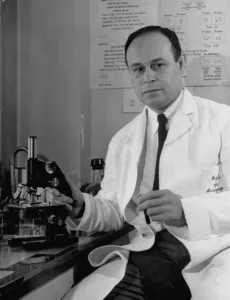 where he ranked second in his class. However, it was his subsequent research in blood preservation and transfusion that would define his career and impact the world.
where he ranked second in his class. However, it was his subsequent research in blood preservation and transfusion that would define his career and impact the world.
During World War II, the demand for blood transfusions surged, highlighting the need for efficient blood storage and transport methods. Dr. Drew’s groundbreaking work in this area led to the development of the blood bank, a concept that has become fundamental to modern healthcare. He discovered that plasma, the liquid portion of blood, could be separated and stored for extended periods without deteriorating, significantly improving the shelf life of blood products. This discovery was crucial for the British Blood Transfusion Service, where Drew was appointed as the director of the Blood for Britain project. Under his leadership, thousands of pints of plasma were processed and shipped to Britain, saving countless lives during the war.
Despite his achievements, Drew faced racial discrimination throughout his career. He advocated for the equal treatment of all blood donors and recipients, challenging the segregationist policies of the time. Tragically, Drew’s life was cut short in 1950 due to a car accident, but his legacy endures through his contributions to blood banking and transfusion medicine. Dr. Charles Drew’s work transcended racial and national boundaries, earning him international acclaim and cementing his place as a true pioneer in medical science.
4. Dr. Patricia Bath – Innovator in Ophthalmology
Dr. Patricia Bath’s groundbreaking work in ophthalmology has had a profound impact on the field, particularly in the treatment of cataracts, a leading cause of blindness 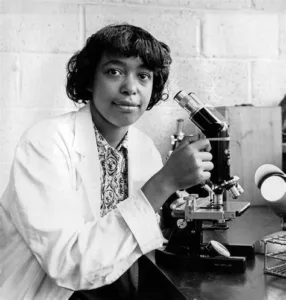 worldwide. Born on November 4, 1942, in Harlem, New York, Bath’s interest in science and medicine was nurtured from a young age. She pursued her medical degree at Howard University and completed her ophthalmology residency at New York University, where she was the first African American to finish a residency in ophthalmology.
worldwide. Born on November 4, 1942, in Harlem, New York, Bath’s interest in science and medicine was nurtured from a young age. She pursued her medical degree at Howard University and completed her ophthalmology residency at New York University, where she was the first African American to finish a residency in ophthalmology.
Dr. Bath’s invention of the Laserphaco Probe in 1986 marked a significant advancement in cataract surgery. This device uses a laser to vaporize cataracts, allowing for the gentle and precise removal of the cloudy lens, which is then replaced with an artificial lens. This method is less invasive and has a faster recovery time compared to traditional surgery. Bath’s innovation made cataract surgery safer and more accessible, benefitting millions of patients around the globe.
Beyond her inventions, Dr. Bath was a passionate advocate for eradicating preventable blindness, especially in underserved communities. She co-founded the American Institute for the Prevention of Blindness, which is based on the principle that eyesight is a basic human right. Through her work, Bath aimed to ensure that all individuals, regardless of their economic status or geographical location, had access to eye care.
Dr. Patricia Bath’s legacy is not only her pioneering medical inventions but also her dedication to humanitarian causes. Her vision and perseverance have opened doors for women and African Americans in the fields of science and medicine, inspiring future generations to pursue their dreams and make a lasting impact on the world.
5. Dr. Jane C. Wright – A Trailblazer in Chemotherapy
Dr. Jane C. Wright’s pioneering work in the field of oncology has left an indelible mark on the treatment of cancer, transforming chemotherapy from a nascent and uncertain approach to a cornerstone of cancer therapy. Born on November 20, 1919, in New York City, Wright came from a distinguished family of physicians. Her father, Dr. Louis T.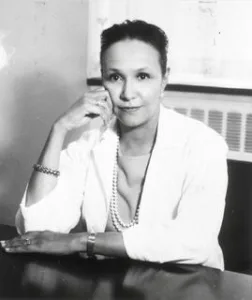 Wright, was one of the first African American graduates from Harvard Medical School and a notable surgeon, setting a precedent for excellence that Jane would follow throughout her life.
Wright, was one of the first African American graduates from Harvard Medical School and a notable surgeon, setting a precedent for excellence that Jane would follow throughout her life.
After completing her undergraduate degree at Smith College and her medical degree at New York Medical College, Wright joined her father at the Harlem Hospital Cancer Research Foundation, beginning her lifelong commitment to cancer research. Her early work focused on developing more effective methods to deliver chemotherapy, exploring how different drugs could be used to target cancer cells while minimizing harm to healthy tissues.
One of Dr. Wright’s significant contributions to oncology was her innovative use of patient tumor biopsies for in vitro drug testing, which allowed for a more personalized approach to treatment. This methodology laid the groundwork for what would later become known as precision medicine, a personalized treatment strategy that takes into account individual differences in patients’ genes, environments, and lifestyles.
Throughout the 1950s and 1960s, Wright’s research and clinical trials led to the development and refinement of chemotherapy protocols for various types of cancer. She was instrumental in discovering the effectiveness of methotrexate, one of the first chemotherapy drugs, in treating skin and breast cancer. Her work significantly expanded the arsenal of chemotherapy agents, providing new hope for patients with previously untreatable forms of cancer.
Dr. Wright’s leadership extended beyond her laboratory and clinic. In 1964, she became the highest-ranking African American woman in a United States medical institution when she was appointed associate dean at New York Medical College. She was a founding member of the American Society of Clinical Oncology (ASCO) and served on the President’s Commission on Heart Disease, Cancer, and Stroke during Lyndon B. Johnson’s administration, advocating for a national network of treatment centers.
Conclusion
The legacies of these five Black pioneers in medicine and health are a testament to their resilience, innovation, and compassion. During Black History Month, we honor their contributions, which have not only advanced medical science but also paved the way for more inclusive and equitable healthcare. Their stories inspire future generations of Black medical professionals to strive for excellence and make their mark on the world. Let’s celebrate these trailblazers and their enduring impact on health and medicine.

